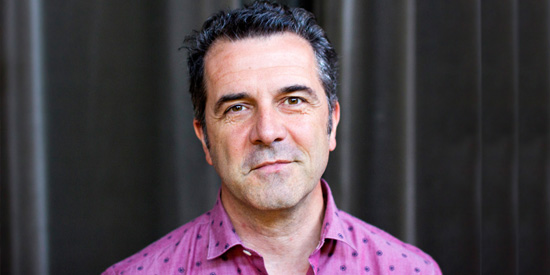
Resident Artist Blog: Guillermo Verdecchia
I have re-written this post three times already. Each time I think I’ve finished writing it, some new event or conversation makes the post seems inadequate or outdated. I’ve tried to write about how working on Animal Farm has afforded an opportunity to think about the change unfolding at Soulpepper. To be clear, Animal Farm has nothing to say about sexual harassment. It is, however, a play about leadership and revolution. It’s about living inside structures larger than an individual. It’s about how those structures shape our choices and possibilities. It’s about how those structures benefit some and harm others. It’s about the difficulty of making change.
Change it seems (seems, madam?) is suddenly upon us, or, it seems that some significant cultural change might occur if only we seize the moment properly. In the larger scheme of things, the upheaval at Soulpepper is small but still significant because it’s an indicator of greater change outside this theatre, and because, well, it’s where many of us have worked for years, and because this theatre has been the locus, rightly or wrongly, of attention, approbation, criticism, envy, and much material support. I am hopeful that the change confronting us might be lasting and meaningful. I think I’m still hopeful.
What does it take to make change? How do we know what the right change is? One thing I’m sure of: the change can’t be a palace coup. We can’t simply replace one man with another and leave an entire structure intact.
Who’s ‘we’?
Some things have already changed in the past month. Foremost among those changes:
The adoption of an anonymous and confidential reporting line.
Clarification of roles in administration to prevent any perceived and actual conflicts of interest.
There are other changes. Most significant, as far as I can tell is a new spirit of communication — at least informally. We’re talking in rehearsal halls about creating safe spaces, about supporting one another. We’re asking questions of one another. We’re talking casually and in organized groups and meetings. We’re talking with experts who can help us make Soulpepper a genuinely diverse company.
To begin to live up to previous lofty claims of being “a place of belonging” will mean respecting the voices of women, staff, artists, people of colour, Indigenous, and queer people; in short, those voices that have been marginalized here in the past.
Soulpepper will be twenty years old soon. It’s time to take stock. While I’ve been here, whenever problems came up they were consigned to the past, not to be dwelt on, because the focus was always on moving forward. Maybe it’s time to stop thinking about growing and doing more. Maybe we should take the time to ask where we’ve been, what we’ve done, and where we want to go based on an accurate assessment of where we stand. We need to talk about the work: the work we’ve made, how we made it, and the work we want to make.
I’m glad to be back at work, to be rehearsing this play written by a former Academy playwright. But it’s also worrying because the more we get on with it, the greater the possibility that we will perpetuate old habits and patterns. I started this post weeks ago, on something of an adrenaline rush. Today, I’m thinking about Kaupscinski’s description of the end of a revolt:
“But there comes a moment when the mood burns out and everything ends … We look uncomfortably into each other’s eyes, we shy away from conversation, we stop being any use to one another. […] This fall in temperature, this change of climate, belongs among the most unsettling and depressing of experiences. A day begins in which something should happen. And nothing happens […]. We begin to feel a great fatigue, apathy gradually engulfs us … .”
I’m thinking too about Boxer’s mantra: I will work harder. We know how that worked out for Boxer and most of the animals on the farm. Blind, heroic, individual effort won’t do it. We need to know what our work is for. We need to think about where our work is leading us. We’ll need to pull together and work smarter. Can we? Do we want to?
Who’s ‘we’?
Guillermo Verdecchia
7 February 2018
The views and opinions expressed in this article are those of the author and do not necessarily reflect those of the organization.